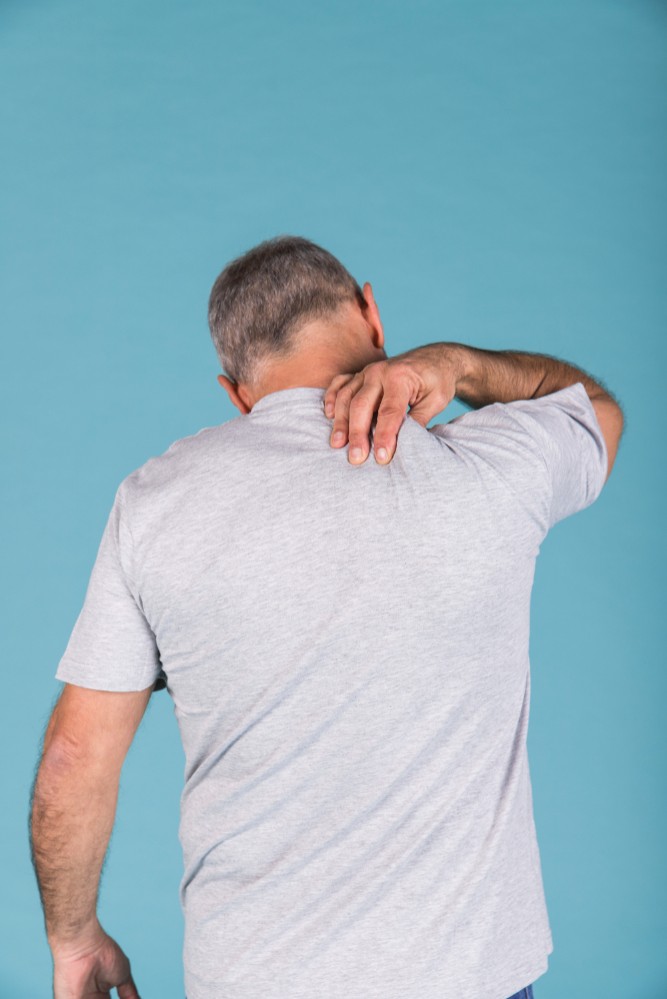Sterling Physiotherapy is a trusted clinic in Hamilton with 100+ real Google reviews for Physiotherapy, Vestibular, TMJ Dysfunction, Massage therapy and Custom orthotics.
Shoulder pain can make even the simplest movements—like lifting your arm, reaching behind your back, reaching up, picking up your child, or sleeping—uncomfortable and frustrating. Whether your pain is sharp and sudden or a nagging ache that just won’t go away, it can interfere with daily life and stop you from doing what you love. Or make living your daily life and completing your daily task a struggle. If you’re looking for shoulder pain relief in Hamilton or searching for shoulder physio near me in Hamilton, our team of physiotherapists, chiropractors and registered massage therapists at Sterling Physiotherapy in Hamilton is here to help.
We provide hands-on therapy, strengthening programs, and targeted rehabilitation to reduce shoulder pain, restore movement, and prevent future injuries. Whether your pain is due to an injury, overuse, poor posture, or arthritis, our experienced team will create a treatment plan tailored to your needs.
Neck Pain
Shoulder Pain
Back Pain
Runner's Knee
ACL Injury
Dizziness & Vertigo
Arthritis
Fibromyalgia
Balance & Gait
Concussion
TMJ Dysfunction Physiotherapy
Knee Pain
Dislocation
Tendonitis
Shin Splints
Tennis Elbow
Sports Injury
Rotator Cuff Injury
Ligament Sprains and Tears
Elbow, Wrist, and Hand Pain
Hip Pain
Located Inside Rexall, 505 Rymal Rd E, Hamilton, ON L8W 3X1
The shoulder is one of the most mobile joints in the body, allowing you to move your arm in almost any direction – such a twister. But with this mobility comes a higher risk of pain, strain, and instability. Shoulder pain can develop suddenly from an injury or while playing sports, or gradually over time due to wear and tear.
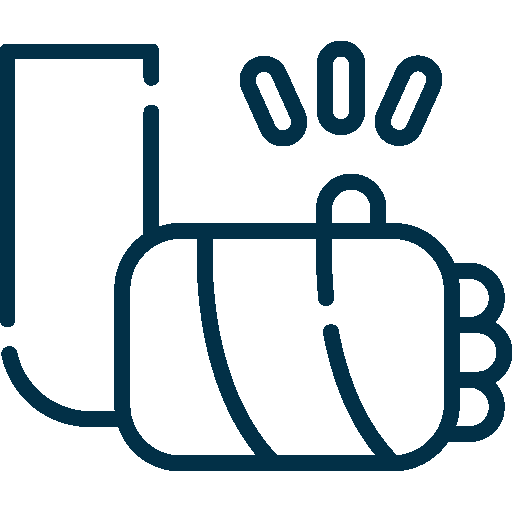
The small muscles that stabilize your shoulder can become strained, torn, or irritated from overuse or sudden trauma.

A stiff, painful condition that develops when the shoulder joint capsule tightens and restricts movement.
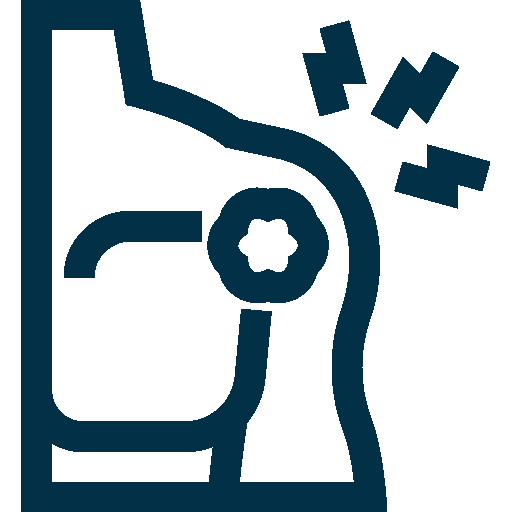
When tendons get pinched under the bones of the shoulder, leading to pain with movement.
Wear and tear on the shoulder joint over time can lead to inflammation and stiffness.
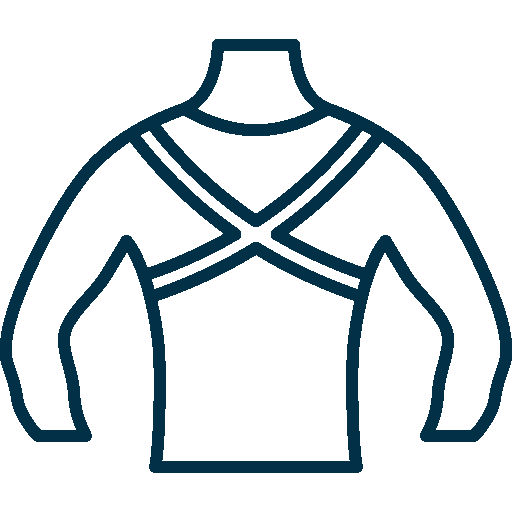
When the joint is too loose, causing pain and frequent dislocations.
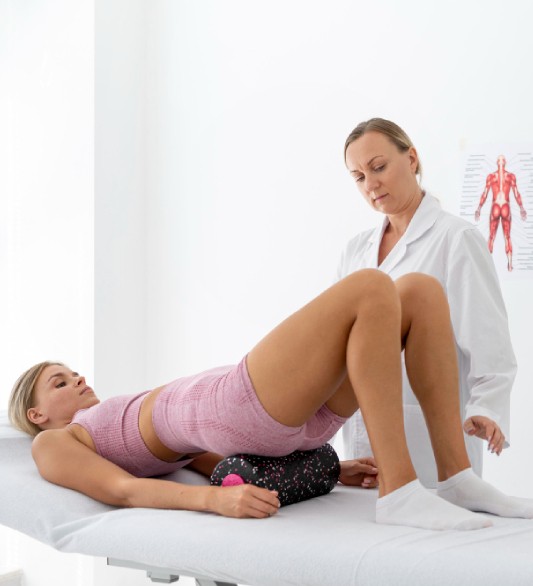


At Sterling Physiotherapy, we are committed to helping you recover from pain, regain mobility, and enhance your overall quality of life. Why let discomfort and stiffness hold you back? Our experienced physiotherapists in Hamilton create personalized treatment plans to help you get back to doing what you love.
Book your appointment today and take the first step toward a healthier, more active life in Hamilton!
Book Appointment
Common Shoulder Conditions We Treat at Sterling Physiotherapy in Hamilton
What is a Rotator Cuff Injury?
The rotator cuff is a group of four muscles and tendons that surround the shoulder joint. These muscles help you lift, rotate, and stabilize your arm. A rotator cuff injury can range from mild inflammation (tendonitis) to a partial or complete tear of the tendons.
Why Does It Happen?
Rotator cuff injuries can occur due to repetitive overhead movements, sudden trauma, or natural degeneration with age. Athletes like swimmers, baseball players, cricket players, construction workers with repetitive tasks at job, and people with physically demanding or monotonous movement of joint jobs are at higher risk, but even something as simple as reaching for an object the wrong way can trigger shoulder.
What Are the Symptoms?
Does This Sound Like You?
Have you noticed that your shoulder feels weaker than before? Does it hurt when you try to grab something from a high shelf or carry a grocery bag? Have you been feeling pain in your shoulder blades after picking up your baby for a long time? Do you experience shoulder pain after playing your favorite sport? Have you been waking up at night because your shoulder aches? If this sounds familiar, you might have a rotator cuff injury that needs professional care.
How We Help:
We’ll reduce inflammation and strengthen the rotator cuff muscles with a mix of manual therapy, stretching, and strengthening exercises. Our physiotherapists will also work on correcting posture and movement patterns to make sure your shoulder functions properly and doesn’t get reinjured. Shoulder slouching or any other bad posture activity can worsen the situation so, our physiotherapists will not only guide you on what to do but also what not do or overdo to trigger or worsen the shoulder pain.
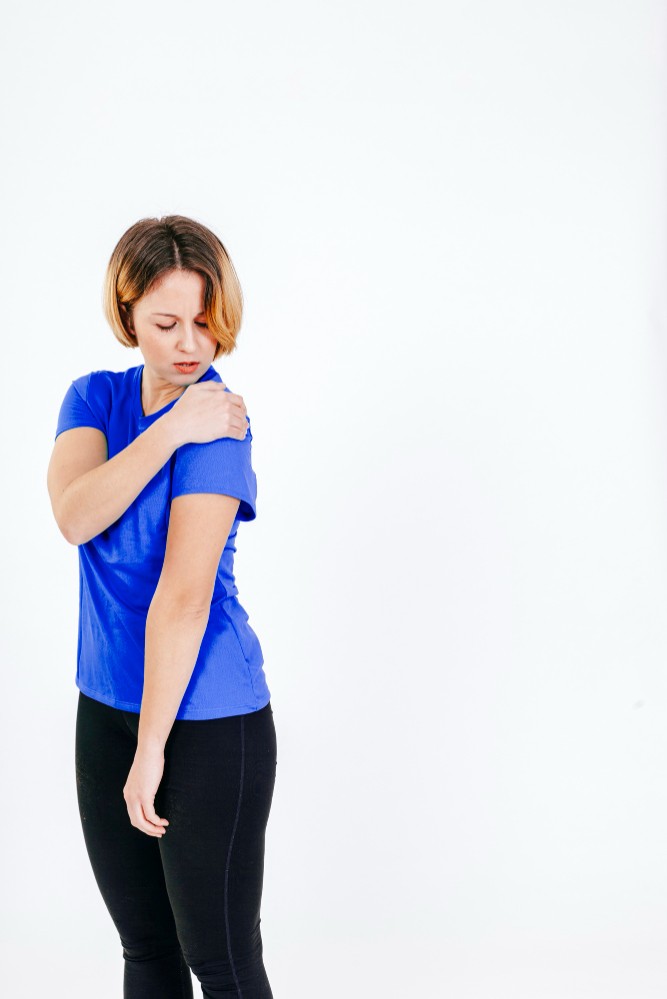
What is Frozen Shoulder?
Frozen shoulder, also known as adhesive capsulitis, is a painful and progressive condition where the shoulder joint capsule thickens and tightens, severely limiting movement. It often develops after an injury, surgery, or prolonged immobility, making it difficult to use the shoulder.
Why Does It Happen?
The exact cause isn’t always clear, but frozen shoulder is more common in people over 40, those recovering from injuries, and individuals with diabetes or thyroid disorders. If the shoulder isn’t moved regularly—due to pain or immobilization—the connective tissue tightens, leading to stiffness.
What Are the Symptoms?
Does This Sound Like You?
Does it feel like your shoulder just won’t move, no matter how hard you try? Has the pain slowly worsened over time, making basic tasks like getting dressed or brushing your hair a struggle? If so, you may be dealing with frozen shoulder, and without treatment, it can last for months or even years.
How We Help:
We’ll use gentle stretching, joint mobilization, and heat therapy to loosen up the tight shoulder capsule. We’ll also work on gradual strengthening and mobility exercises to restore full movement over time. Frozen shoulder can be frustrating, but with the right approach, we can help you regain function.
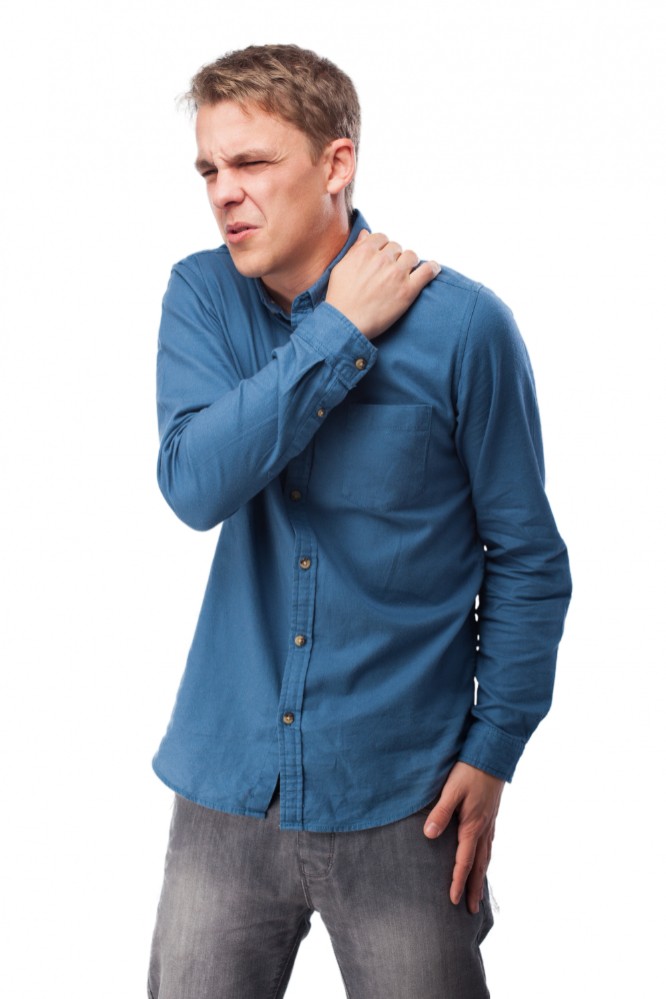
What is Shoulder Impingement?
Shoulder impingement occurs when the tendons of the rotator cuff get pinched between the bones of the shoulder, causing inflammation and pain. This happens when there’s not enough space for the tendons to move freely, leading to irritation.
Why Does It Happen?
This condition is often caused by poor posture, repetitive overhead movements, or muscle imbalances. Athletes, swimmers, painters, and people who do a lot of overhead lifting are at a higher risk.
What Are the Symptoms?
Does This Sound Like You?
Do you feel a sharp, pinching pain when reaching for something overhead? Does your shoulder hurt when lifting weights or doing everyday activities like washing your hair? If these symptoms sound familiar, you could have shoulder impingement.
How We Help:
We’ll focus on reducing inflammation, improving posture, and strengthening your shoulder stabilizers so your tendons aren’t getting pinched. Manual therapy, stretching, and postural training will help you move pain-free.
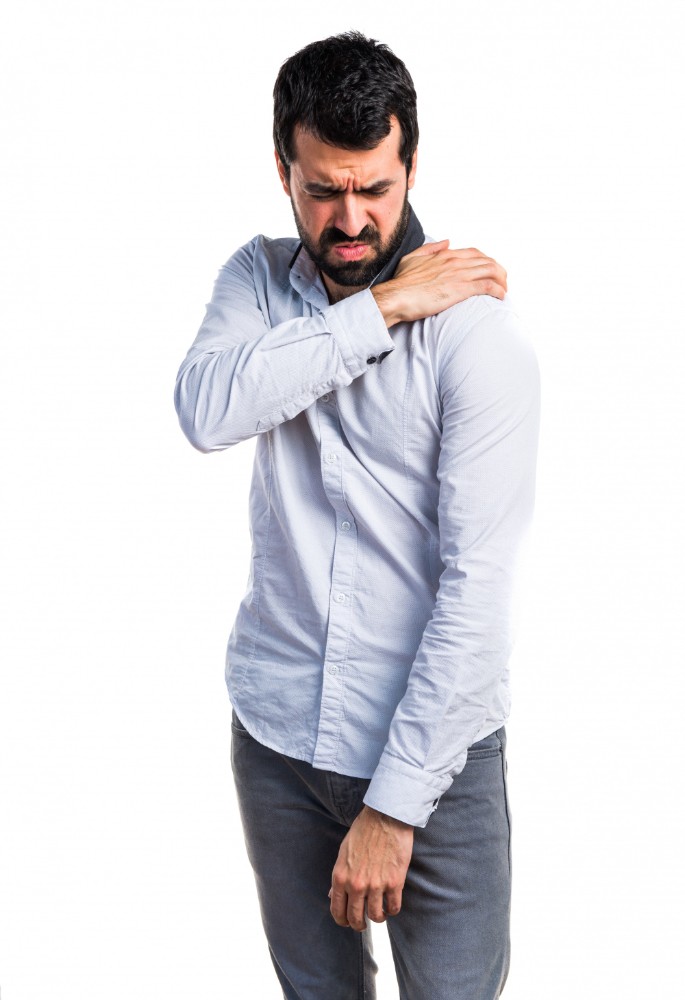
What is Shoulder Arthritis?
Arthritis in the shoulder happens when the cartilage in the joint wears down, leading to pain, stiffness, and reduced mobility. Over time, the bones begin to rub against each other, causing discomfort and inflammation.
Why Does It Happen?
Shoulder arthritis is more common in older adults, people with a history of shoulder injuries, or those who have done repetitive heavy lifting. It can also develop after a rotator cuff injury or joint trauma.
What Are the Symptoms?
Does This Sound Like You?
Do you find it hard to lift your arm without discomfort? Does your shoulder feel stiff in the morning or after periods of rest? Are simple tasks like reaching for a cupboard or buttoning a shirt becoming harder? If so, you might have shoulder arthritis.
How We Help:
We’ll focus on gentle movement therapy, joint mobilization, and strengthening exercises to reduce stiffness and keep your shoulder mobile. Heat therapy and soft tissue massage can also help relieve discomfort.
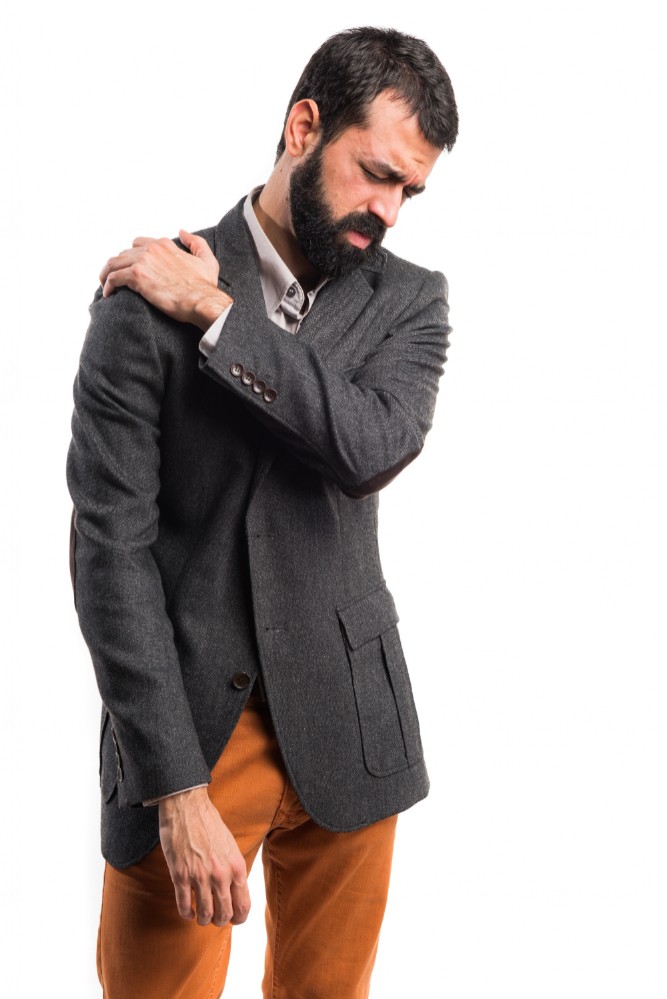
What is Shoulder Instability?
Shoulder instability happens when the ball of the shoulder joint doesn’t stay securely in the socket, causing pain, weakness, and a higher risk of dislocation.
Why Does It Happen?
Instability can be caused by previous dislocations, repetitive overhead movements, or naturally loose ligaments. Some people are born with more flexible joints that make them prone to instability.
What Are the Symptoms?
Does This Sound Like You?
Does your shoulder feel like it “slips” or pops out of place? Have you had multiple dislocations and now feel unsure when moving your arm? Do certain activities, like throwing a ball or lifting, make your shoulder feel unstable? If so, you may have shoulder instability.
How We Help:
We’ll work on stabilization exercises, strengthening your shoulder muscles, and retraining your movement patterns to keep your joint in place. If your shoulder has dislocated before, we’ll guide you through a rehab plan to prevent future injuries.
